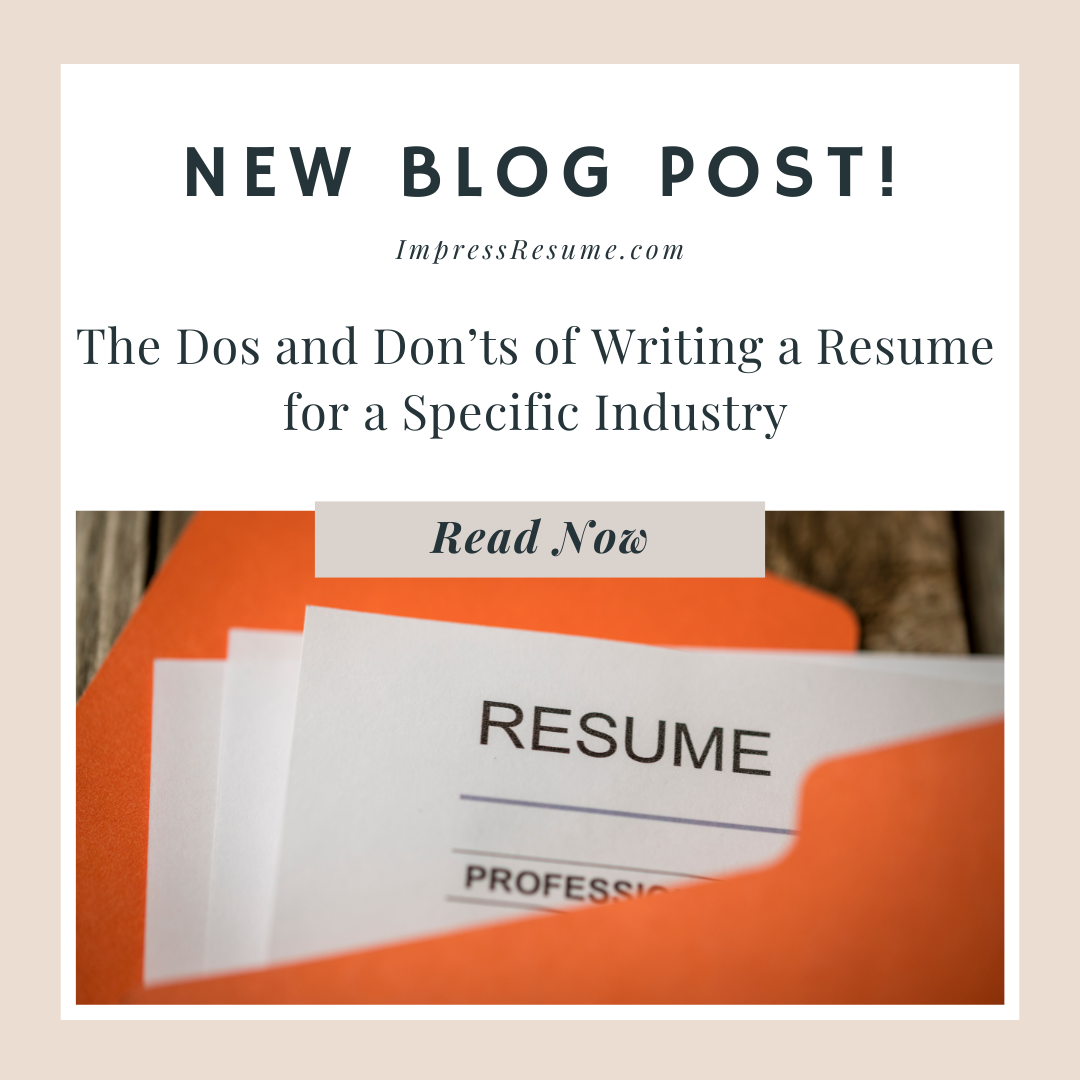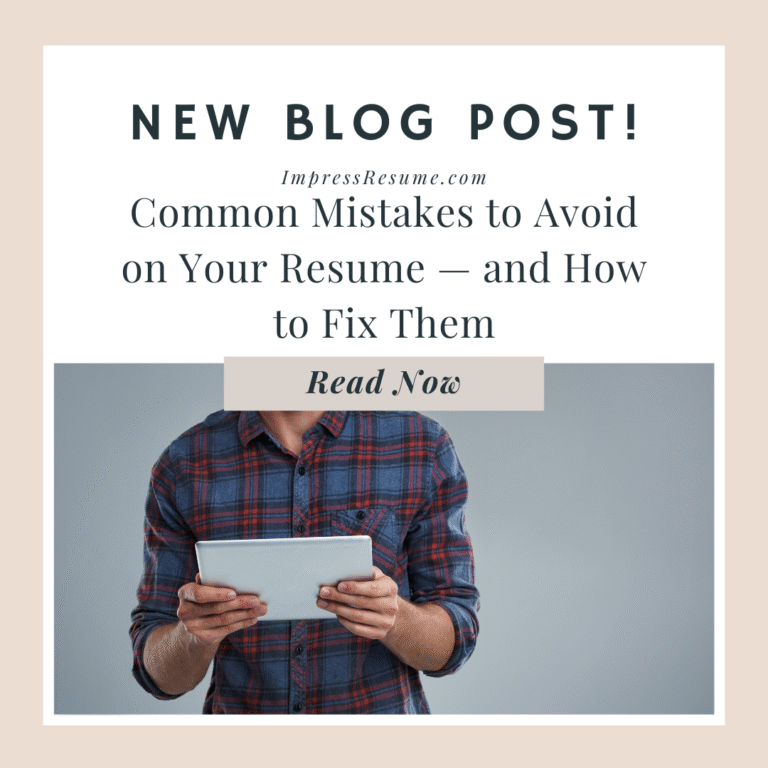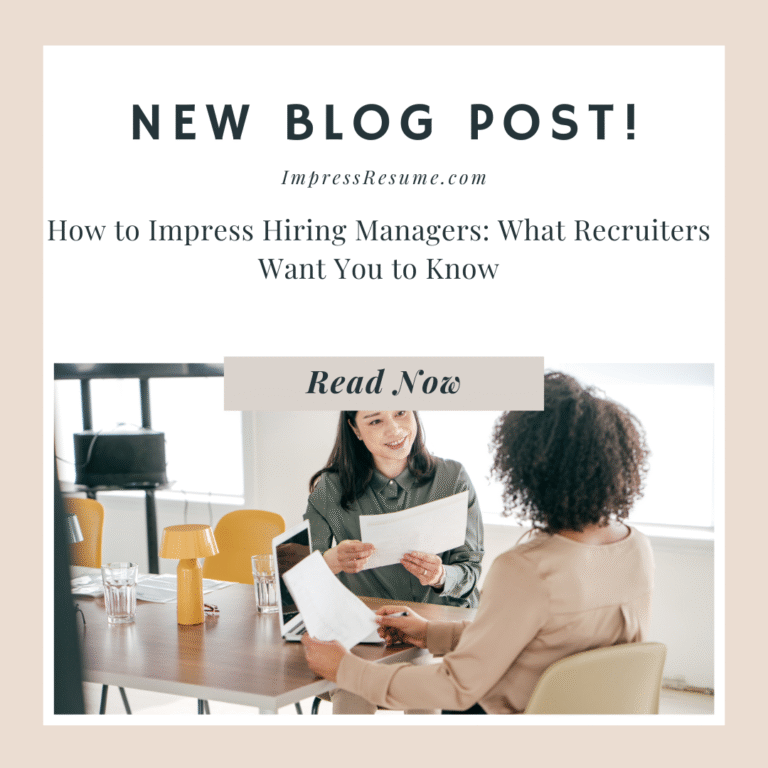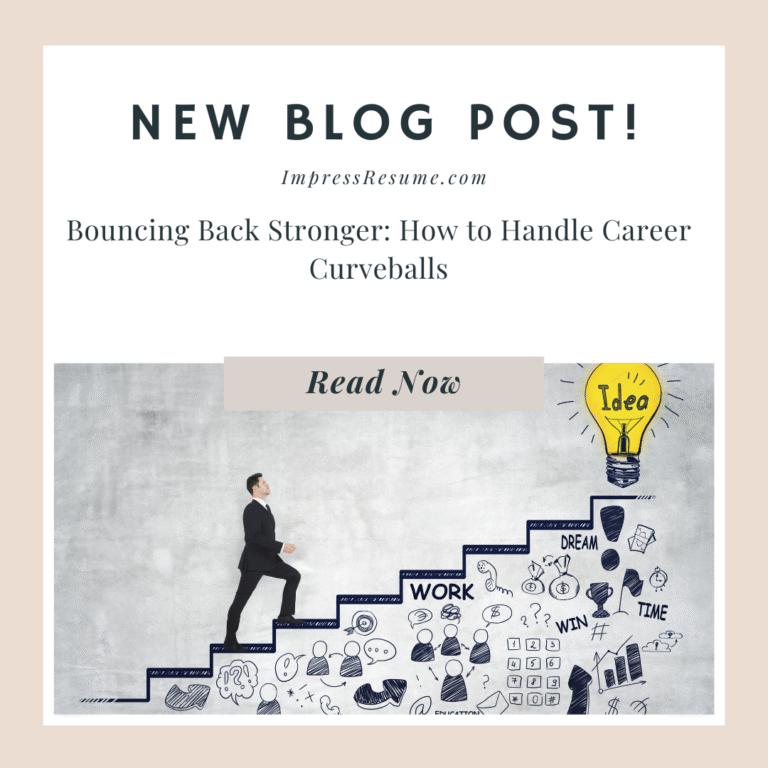The Dos and Don’ts of Writing a Resume for a Specific Industry
When it comes to writing a resume, one size does not fit all.
Every industry has its own expectations—what counts as impressive in finance might look vague in tech, and what works for a creative role could seem unprofessional in healthcare. That’s why tailoring your resume to the industry you’re targeting isn’t just a good idea—it’s essential.
Whether you’re switching careers or fine-tuning your current resume, understanding the dos and don’ts of writing for specific industries can make a big difference in how you’re perceived by hiring managers and Applicant Tracking Systems (ATS).
Let’s break it down.
DO: Research Resume Standards for Your Target Industry
Why it matters: Different industries prioritize different things. Tech recruiters may want to see specific tools and programming languages. Healthcare roles may focus more on certifications, licenses, and regulatory compliance.
Tip: Look at 3–5 job listings in your field. Pay attention to how the qualifications are described, and mirror that language in your resume.
DON’T: Use the Same Resume Across Industries
Why it matters: A general resume might be fine for entry-level roles, but if you’re applying across different fields, the expectations change.
Mistake: Submitting the same resume for a customer service job and a marketing position.
Fix it: Create multiple resume versions—each targeted to the language, skills, and achievements valued in that industry.
DO: Include Industry-Specific Keywords
Why it matters: ATS software ranks resumes based on how well they match the job description. Including the right terminology can boost your score.
Tip: If the job post mentions “Epic EMR” or “Lean Six Sigma,” and you have experience with those, include them directly on your resume.
DON’T: Rely on Buzzwords Without Context
Why it matters: Words like “team player” or “hard worker” don’t mean much unless you can back them up.
Fix it: Focus on results and metrics. For example, in sales: “Exceeded quarterly quota by 35%” is far more effective than “Results-oriented professional.”
DO: Align Your Formatting With Industry Norms
Why it matters: A creative resume might shine in design but flop in finance.
Creative field: You may use a pop of color or a unique layout
Corporate field: Stick with clean, professional formatting in black and white
Medical/Academic field: Prioritize certifications, research, and technical terminology
Tip: Keep your formatting consistent, clean, and easy to read—especially for ATS systems.
DON’T: Include Irrelevant Details
Why it matters: Employers don’t need to know everything. They want to see what applies to them.
Fix it: Trim unrelated jobs, skills, or outdated experience unless you can directly tie it into the position you’re applying for.
DO: Highlight Your Industry-Specific Certifications and Tools
Why it matters: Certifications can be a quick way to stand out—especially in regulated industries.
Examples:
- Project Management: PMP, Scrum, Jira
- Healthcare: RN, CPR, Epic EMR
- IT: AWS, CompTIA, SQL
- Education: TESOL, Praxis
Tip: Include these in a dedicated “Certifications” or “Technical Skills” section.
DON’T: Forget to Adapt Your Tone and Language
Why it matters: The tone of your resume should reflect the culture of your target industry.
- Tech/Startups: Lean, results-driven, fast-paced
- Nonprofit/Education: Values-based, mission-driven
- Legal/Corporate: Formal, structured, traditional
Fix it: Adjust your summary and job descriptions to reflect the tone and priorities of your target field.
DO: Keep It ATS-Friendly Regardless of Industry
Why it matters: No matter the field, if your resume can’t be read by an ATS, it won’t be seen.
Tip: Use standard fonts, avoid graphics or tables, and save your file as a .docx or PDF (if the system allows).
Need help getting it right the first time? ImpressResume.com/shop offers ATS-friendly resume bundles designed by a recruiter, with clean layouts for any industry—from healthcare to marketing to skilled trades.
Final Thoughts from a Recruiter
Your resume should reflect where you want to go, not just where you’ve been. Writing it for your specific industry shows that you understand the expectations, speak the language, and respect the culture of that field.
Whether you’re just starting out or making a shift, a well-targeted resume is one of your strongest tools—and it’s worth doing right.
If you’re not sure where to start, grab a professionally designed template at ImpressResume.com/shop. They’re budget-friendly, easy to edit, and built to work with real hiring systems.







